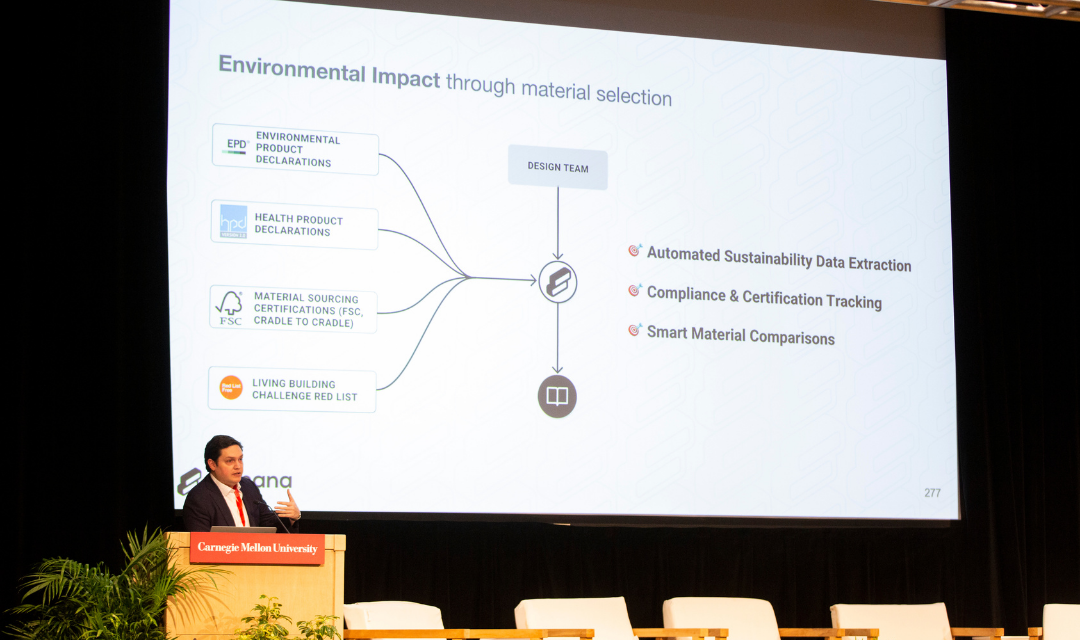Building sustainably with Sabana
Giordana Verrengia
Jun 17, 2025

CEO and co-founder Ruben Quesada demonstrates how Sabana streamlines access to sustainable building materials during the Energy and Cleantech Startup Pitch Showcase at CMU Energy Week 2025.
Ruben Quesada came to Carnegie Mellon University to earn an MBA while taking serious interest in energy and sustainability, a complementary set of interests that led him to co-found Sabana, an AI-powered data management startup that puts sustainability in the hands of the design team at architecture firms. Quesada was an inaugural recipient of the Scott Institute for Energy Innovation’s new entrepreneurship award.
Sabana’s business model looks at sustainability through the lens of embodied carbon, which represents the greenhouse gas emissions that span a product’s lifecycle from raw materials to eventual disposal.
Design teams, including architects, engineers, and specification writers, routinely review hundreds to thousands of products in a given year to choose the best materials for construction projects. Environmental product declarations (EPD) are sometimes included with product information.
“Architects typically don’t have time to absorb that information and then review it and then compare it. We’re trying to simplify the process,” said Quesada. “We see our product being highly collaborative and needed by larger firms because of the sheer amount of data.”
Quesada likens the importance of EPDs to comparing nutrition labels: some products are more environmentally friendly than others, but that information is difficult to sort through. Sabana scrapes unstructured product information available on websites and PDFs, then uses its AI to parse the data and present it to users in a structured format, making it easier to compare EPDs and choose the more sustainable option.
Sabana will use support from the Scott Institute to hit the ground running in its second product rollout. Based on feedback from early beta testers at roughly half a dozen architecture firms, Quesada and his team will refine the product to add more collaborative tools and provide additional product information like a cost log, comments, and cross-referencing features. So far, Sabana has worked with architecture firms mostly in the Pittsburgh region, and in anticipation of scaling up operations the team has relocated to San Francisco for the summer to build more relationships around the country.
Quesada, who graduated from the Tepper School of Business this past spring, benefited from the robust support system at CMU for entrepreneurial-minded students. In addition to the Scott Institute, he cites the Swartz Center for Entrepreneurship and Project Olympus as invaluable resources for growing an idea into a company.
Quesada has words of wisdom for other aspiring student entrepreneurs.
“Leave your building. Sometimes we get really siloed, and I think that prevents us from doing some great things,” he said, noting the valuable connections he made when he took classes in computer science and engineering. “The people I collaborate with at the startup are studying AI and computer science. We’re able to build something completely unique, and I think that’s the value of CMU.”
